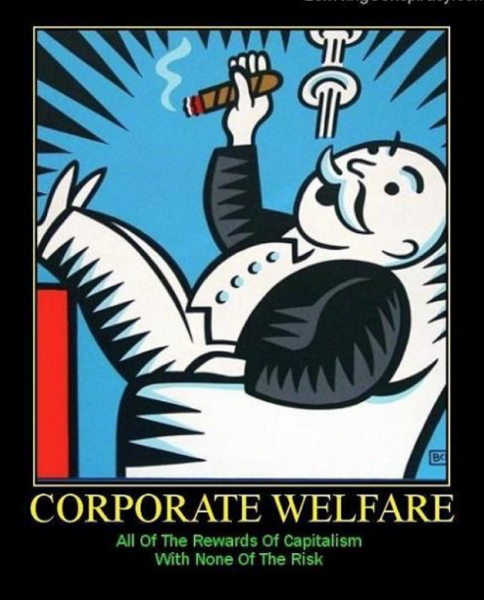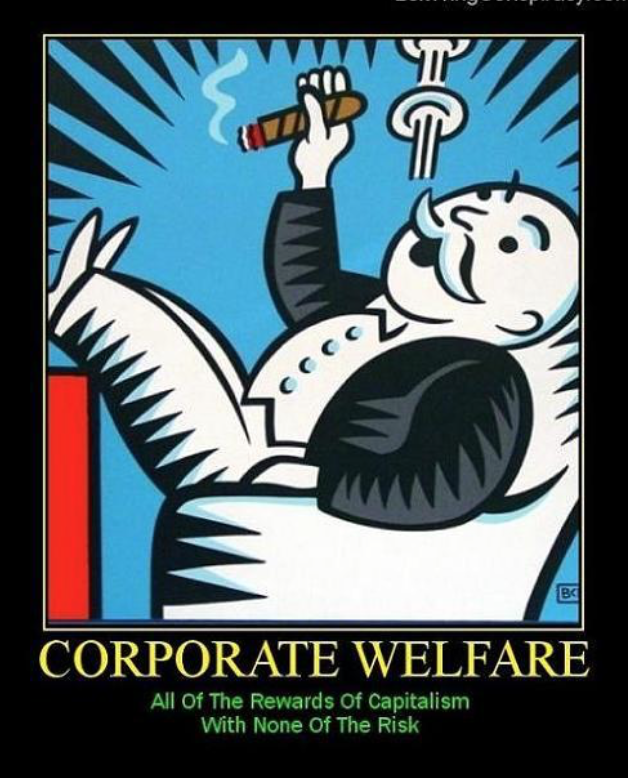
The new data on inequality from Oxfam shows an even more obscene disparity than previous reports – 8 billionaires owning more than half the world’s population and two billionaires in New Zealand owning more than the poorest 30% of New Zealanders. This is not inevitable. It results from rules that favour the rich and penalise the poor.
As US Supreme Court Justice Louis Brandeis said, ‘We may have democracy, or we may have wealth concentrated in the hands of the few, but we cannot have both.’ The US political system has shaped the rules in favour of the wealthy and corporate interests for many decades before the current Trump regime, but the warning is also relevant for New Zealand.
Behind a smiling face and a moderate appearance, this government has been relentless in further orienting the rules to favour the billionaires, foreign investors and multinationals, while relentlessly targeting the vulnerable in society with endless compliance demands and vindictive administration of our benefits schemes. Meanwhile our democratic rights are being eroded by the politicisation of the civil services, quangos stuffed full of business allies and the expansion of Ministerial discretion. The result is entrenchment of a deeply unfair system.
Over the period of this government, tax rates for the wealthy and business have been cut, foreign trusts have made New Zealand an integral part of the system of tax havens, there have been sweetheart deals with Sky City and other corporations and the rules have been skewed to benefit foreign investors and big business interests.
The contrast is startling. The Serious Fraud Office estimates welfare fraud of $80 million per year, and tax evasion of a far higher $2bn per year $7bn per year according to the Tax Justice Network). But researchers estimate that around 1000 people were charged for welfare fraud while 80 people were charged for tax evasion. One set of rules for the rich and another set of rules for the poor.
While the government says there’s no more money for beneficiaries, they have facilitated $30 million profit made by Peter Thiel’s foreign investment fund, using a mix of their funds and government money. Our taxpayer share of the profits went into the pocket of the foreign investor. Taking from the poor and giving to the rich.
The problem is not just corporate welfare but the continuation of so-called ‘light regulation’ (often voluntary codes or no regulation at all) to benefit particular business interests. New Zealand has a long list of deregulation that has socialised the costs of private greed, stretching back to finance company collapses, the Pike River disaster, leaky homes and collapsed buildings. These costs borne by taxpayers, amount to billions of dollars. The human costs include the loss of too many lives.
A recent example of lax regulation to pump up short term profits at any costs, has been shown by the exploitation of Indian students, not only victims of fraud but then deported. An apparently booming education sector looks good for GDP, but delivers poor outcomes for the students and damages New Zealand’s reputation abroad.
More examples are shown in the government’s recklessness in allowing speculation and profiteering in the housing market, failing to crack down on cartels, caving in to lobbying for delays to anti-money laundering rules and failing to end the secrecy and abuse of foreign trusts.
This continues a long list of deals that favour foreign investors and the government’s desperate attempt to lock in rights for foreign investors to sue our government if regulation adversely impacts their profits. Thankfully the TPPA has been rejected after a huge global campaign (another defeat for corporate lobbyists on investor rights). Bill English’s attempts to revive the TPPA are flogging a dead horse.
It’s time we got our priorities right. The Green Party would crack down on corporate welfare – no more welfare for Peter Thiel, no Sky City sweetheart deals, no Hobbit deals, no more bailouts of Southland Finance and no sweetheart privatisation deals. We would regulate the economy in the public interest.
We would ensure that there was a comprehensive capital gains tax, so those who are wealthy pay their fair share of taxes. And we would close the loopholes that allow multinationals and tax evaders to use transfer pricing and tax havens to evade paying their taxes.
We will support sound business that benefits communities and our economy, especially small business and companies that add value to our natural resources rather than exporting unprocessed commodities. We will enhance education and training and seek to create more opportunities in the growing sectors of clean technology and ICT, rather than propping up polluting industries and fossil fuel extraction.
And we would support the vulnerable in our society, through policies that will be rolled out in the forthcoming election campaign, to reform welfare, enhance support for kids and families, and create a more caring and more equal society. Roll on 23rd September – it’s time to change the government!
Barry Coates MP is the Green Party spokesperson for Commerce and Consumer Affairs, Trade and Investment, Gambling and a few other issues. www.greens.org.nz






get rid of the bastards they are crooks
Some time ago I came across a small newspaper item which said that the banks favoured capital gains taxes; the cynic in me thought, well, of course they would, wouldn’t they. Capital gains taxes would have no effect on interest rates, whereas alternatives, such as land or property taxes would reduce the revenues from which interest could be paid, and might therefore have a negative effect on interest rates.
The biggest rort of the lot though is deductibility of interest for tax purposes. Businesses don’t care whether monies invested in them are borrowed, or come from the proprietor’s or landlord’s own pocket. Therefore interest can’t really be contributing to the production of taxable income, as required by the income tax act. Interest is something of an anomaly in the income tax act.
“A recent example of lax regulation to pump up short term profits at any costs, has been shown by the exploitation of Indian students, not only victims of fraud but then deported. An apparently booming education sector looks good for GDP, but delivers poor outcomes for the students and damages New Zealand’s reputation abroad.”
Ain’t that the truth, and one that may very well blow up in their face.
As I understand it, international (Indian in particular) enrollments in our ‘export education sector’ are already dropping off – as they should.
The forced deportation (today) of a number will be symbolic.
It’ll be interesting to see just what the stamps in their passports will be as they leave.
The spin of course is that these are just bloody immigrants coming over here and taking all our jobs.
Nothing’s final though, but it does all fit with our culture that now sees everything in the short term, the next next next, the I I I, the me me me.
I guess they’re also spooking our women and raping our livestock, eh? ;-P
Do you know how many kiwis live and work in other countries? Are any of them your family members or friends? Has it occurred to you that, from the point of view of the people who were born in those countries, your overseas family members and friends are “just boody immigrants coming over here and taking all our jobs.” Might be worth giving some thought to how would you like those family and friends of yours to be treated by the native populations in those countries, eh?
It’s been going on for centuries.
The hang the man and flog to woman
That steals the goose from the common.
And set the greater villain loose,
who steals the common from the goose.
It’s the rich that get the money.
And the poor that get the blame.
So much for the teachings of Christ or the Buddah.
The super rich are venom toxic leeches on the global society and must be exterminated.
Oh dear.
Is that the size of the ‘vision’? Is that the depth of the thinking?
‘fair share of taxes’ – not a word, not a squeak, about a definition for that ‘apple pie’ who- could-possibly-disagree term ‘fair’? By the time it’s gone through all the committees, commissions, appeals, courts local and international, we’ll be several electoral rounds from now. All the health-giving benefits of candy floss…
‘We will support sound business’. Ahhh. Suffers from the same curse of the bland and vague as the previous statement.
Is it going to be like all the other ‘pick a winner, take a punt’ ventures we’ve endured for so long in the country? With the government pretending to be wise venture capitalists as well as short termist ‘law’ makers? Shades of Muldoon, eh?
‘support the vulnerable in our society, through policies…’ Trees are dying for this. With a bit of technological knowhow, the vast piles of useless and unimplemented recommendations, reports, policies and Papers could be converted into durable and very affordable housing.
Be damned to your policies, sir. they are rarely to never backed by funds, competent management, trained personnel, or sufficient longevity to break the circle and make the beneficial difference – and you probably know that.
Less smoke. No mirrors for our dearest hopes – and, for the greater good of all, spell it out – even if Those Heartless Others steal your Best Ideas and you don’t make it to the comfy seats of influence.
Who knows, those ideas may actually be converted into effective working action. Measured and improved, too.
Or is that too much to ask?
There’s only so much detail that fits in a blog post Andrea. How about you read the policy detail for yourself, rather than demanding Barry spoon-feed it to you?
https://home.greens.org.nz/policy/full
Or is that too much to ask ;P
Comments are closed.